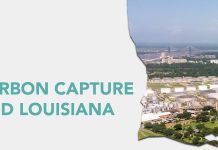A majority of voters in Virginia, West Virginia and North Carolina, all states where the proposed Atlantic Coast Pipeline would run through, not only know all about the project, they support it.
That’s according to a recent poll by Hickman Analytics on behalf of Consumer Energy Alliance (CEA), the latest in a series to examine what role energy issues will likely play in the 2016 presidential election.
The answer, it appears, is big — very big.
In all, more than 80 percent of voters in Virginia, West Virginia and North Carolina said that energy would play a significant factor in how they vote next fall. The same percentage of voters in Iowa, New Hampshire and South Carolina, the first three primary states of next year’s election, said the same in polls last month.
“It is clear from CEA’s polling that energy policy will be top of mind when voters cast their ballots in this upcoming election,” CEA President David Holt said, according to the Charlotte Business Journal. “Voters clearly support the development of energy infrastructure. In order to win, candidates are going to have side with voters.”
This is particularly the case with the $5 billion, 550-mile Atlantic Coast Pipeline, which will carry natural gas through West Virginia, Virginia and North Carolina upon completion. Of the 500 voters polled, 56 percent of voters in Virginia, 70 percent in West Virginia and 55 percent in North Carolina support construction of the pipeline, the Richmond Times-Dispatch reported.
Voters said they supported the pipeline for an assortment of reasons. Top on the list was job creation (19 percent), followed by an anticipated reduction in the price of natural gas (18 percent). Its expected contribution to U.S. energy independence and the economy were also cited as reasons for support.
In addition, a majority of respondents of all political affiliations — Democrats, Republicans, and the long-sought-after Independents — said they support expanding offshore exploration, constructing the Keystone XL pipeline, keeping coal power plants operational, and expanding shale production via hydraulic fracturing. Likewise, voters overwhelmingly believe pipelines are the safest means to transport natural gas.
It’s hard to come any closer to showing cross-party unity on an issue than that.
“A measure of the breadth of support is that almost as many self-identified liberals support the project as oppose it,” Hickman Analytics reportedly said in the analysis, according to The News Virginian.
The poll also highlighted that there isn’t currently a frontrunner for the Republican nomination in Virginia, West Virginia or North Carolina. The closest is Jeb Bush, who leads the Republican primary field in Virginia with 16 percent support among voters. Hilary Clinton is the favorite for the Democratic nomination in all three states.
The winners of both nominations had better keep strong energy production firmly in mind if they’re going to win the White House, Holt added.
“As we have seen in the past, the success of candidates in 2016 will hinge on their ability to promote issues that foster economic and job growth while ensuring safety and the protection of our environment,” Holt said. “This can be achieved through the promotion of energy infrastructure and production, which will contribute to U.S. self-sufficiency, stimulate the economy, and create jobs.”









